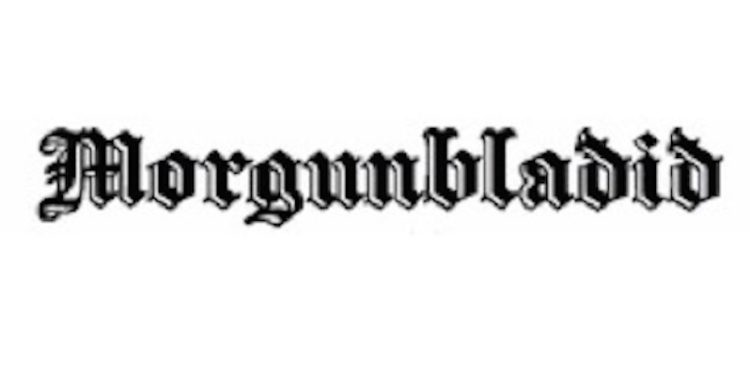Icelandic online magazine Kjarninn has reported on the strange situation of the country’s main newspaper, its fishing industry ownership and the fact that the paper makes financial losses on a colossal scale.
The motives behind the purchase of Árkakur, the company that owns Morgunblaðið, Iceland’s long-established leading newspaper, but a group of overwhelmingly fishing industry companies is open to speculation. The present ownership acquired the ailing newspaper in 2009, just months after the financial crash rocked Iceland. There were no immediate changes and the paper continued to appear with its editorial policy unchanged, until the pro-EU membership editor was finally replaced with two new figures – one of them the former Prime Minister and head Iceland’s Central Bank in the years leading up to the 2008 financial crash, his appointment a thoroughly controversial decision.
According to Kjarninn, Morgunblaðið has since then maintained a robust stance that has strongly reflected its ownership’s interests, with an implacable anti-EU line, and opposition to any changes to the constitution and the quota system, any levies on fishing companies, as well as a clear loathing of the centre-left government that was in power from 2009 to 2013.
Morgunblaðið’s ownership is linked to the owners of fisheries-linked companies Samherji, Kaupfélag Skagfirðinga, Lýsi, Síldarvinnslan, Rammi, Gunnvör, Skinney-Thinganes and Vísir, but also overwhelmingly to Westmann Islands fishing company Ísfélagið, and Kjarninn reckons that close to 96% of the newspaper’s ownership is linked closely to companies in the fishing sector.
The downside of owning a newspaper such as Morgunblaðið is that it’s an expensive loss-making operation. According to Kjarninn, operating company Árvakur and its parent company Thórsmörk have made losses of ISK 1.50 billion since taking over, equivalent to €11 million at today’s exchange rate, and ISK160 million (that’s €1.20 million) last year.
It’s worth asking why fishing companies are prepared to lose such significant amounts of cash in a publishing venture – and the answer appears to be that it works. The newspaper has been at the forefront of defending their position and influencing public opinion. According to Kjarninn, the last government left office as the country’s most unpopular administration ever (although it’s possible that the present government could turn out to be even less popular by the time elections are held), EU accession has been shelved, IceSave negotiations were the subject of a national referendum, the state broadcaster has been starved of resources, a bitter rearguard action was fought against changes to fisheries management legislation, and fishing industry levies have been diluted to a fraction of the original amounts they were expected to raise for the state.
It’s safe to conclude that in spite of the losses made by Morgunablaðið and its parent company, the newspaper remains a key part of moulding public opinion and its owners more than likely feel that they struck a bargain when they bought it back in 2009.









